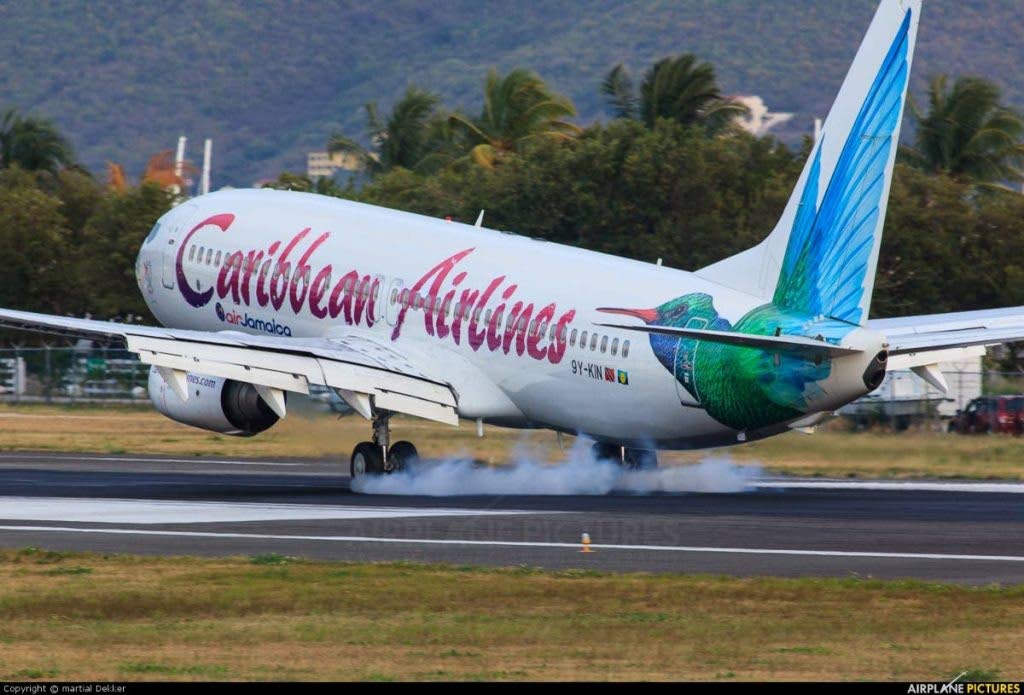Appeal Court affirms union's right to represent CAL workers

AN order by the Industrial Court to allow the Communication, Transport and General Workers’ Union to represent employees of Caribbean Airlines Ltd (CAL) after it replaced British West Indian Airways (BWIA) in early 2007 has been affirmed by the Court of Appeal.
In a ruling on April 22, Justices of Appeal Alice Yorke-Soo Hon, Mira Dean-Armorer and Malcolm Holdip dismissed CAL’s appeal.
Dean-Armorer, who delivered the ruling, said the Industrial Court’s decision could not be faulted as it made no error in law.
“In our judgment, the Industrial Court decided this case from all the circumstances in accordance with good conscience and the principles of good industrial relations practice,” she said.
“In so far as the challenge was to the Industrial Court’s findings of fact, it is now well established that a finding of fact will be overturned on appeal only if it amounts to an error of law.”
After CAL replaced BWIA in January 2007, the union applied to the Industrial Court to exercise its discretion under Section 48 of the Industrial Relations Act to rule that the airline was BWIA’s successor.
In its appeal, CAL contended the Industrial Court’s decision went against the weight of the evidence and the findings were not justified.
Sixteen points were raised by CAL’s lawyers at the appeal.
However, the Appeal Court said while a finding of successorship was not automatic, the Industrial Court arrived at a decision guided by good conscience and the principles of good industrial relations.
“...Workers are not rendered metaphorical orphans and they are not left without the protection of representation by a recognised majority union.
“Rather, the law provides that the new employer should be regarded as the successor of the former employer for the purposes of the collective agreement which had subsisted between the representative union and the former employer.”
Dean-Armorer said over the years, the Industrial Court has established what is now known as the “three substantial tests” in determining whether or not a new employer should be regarded as the successor of the old.
She explained that this meant that the court had to establish, after applying the test, that the new employer carries on substantially the same operation as the former employer in substantially the same way with substantially the same employees.
She also rejected CAL’s claim that the finding of successorship was precluded as the BWIA employees received severance payments before joining CAL.
The judge said severance was but one of the factors the Industrial Court considered.
“Their decision was based on their findings of fact as to the similarity between the two companies, BWIA and CAL. These were findings of fact that the business operations of BWIA together with its intangibles, physical assets and human assets, continued to be used substantially the same way by CAL, who continued substantially the same operations as BWIA.
“...Moreover, CAL has retained some significant identifying features of BWIA and from the totality of the evidence, CAL was created as a result of the restructuring of BWIA as mandated by the principal shareholder and the purpose of CAL was to replace BWIA as the national flag carrier,” she added.
As the Appeal Court held that the IC correctly applied the test, Dean-Armorer said, “In our view, the evidence supported the almost twin-like similarities between the two companies. Indeed, it may have been perverse and contrary to good conscience to disregard those similarities.”
CAL was represented by Russell Martineau, SC, while Douglas Mendes, SC, and Imran Ali represented the union.


Comments
"Appeal Court affirms union’s right to represent CAL workers"